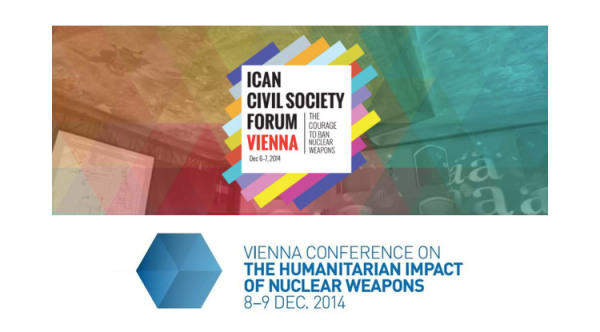It was announced yesterday in Parliament that the UK will be attending the Vienna Conference on the Humanitarian Impact of Nuclear Weapons, the third in a series that began with Oslo in March 2013 and was followed by Nayarit, Mexico in February 2014. This is the first time that the UK is participating in this forum.
The government will be represented by Susan le Jeune d’Allegeershecque (ambassador to Austria & the UN in Vienna).
There was a fair amount of pressure on the government to attend, with two Early Day Motions garnering 34 and 79 signatures respectively, questions asked in Parliament on a number of occasions, and senior Labour opposition MPs joining the calls. More than 1000 people joined in twitter actions and lobbied their MPs co-ordinated by CND, the Campaign for Nuclear Disarmament. In the end though, it was surely US attendance (also for the first time) which clinched matters.
Last week a briefing was held in Parliament with the All Party Group on Weapons and the Protection of Civilians (facilitated by the disarmament NGO, Article 36). Chaired by Sir Nick Harvey MP, former Minister of State for the Armed Forces, there was cross-party attendance from Liberal Democrats, Labour, and the Scottish National Party (with the Green Party expressing strong support but unable to attend), and both Houses of Parliament represented. Rebecca Johnson and Thomas Nash spoke on behalf of the International Campaign Against Nuclear Weapons (ICAN).
Sir Nick Harvey MP welcomed the new international focus on the humanitarian impact of nuclear weapons, saying that 1983 was the last time we felt the reality of the threat of nuclear weapons and that the world needs reminding once again. “International efforts to promote understanding of the consequences of nuclear weapons inevitably lead to greater pressure on those who argue they have the right to have them”.
Dame Joan Ruddock MP said: “I can see that the humanitarian initiative is the best hope we’ve got to create change”.
Angus Robertson MP said “the Vienna Conference is taken very seriously by countries around the world, and should be by the UK too.”
Dr Rebecca Johnson, Executive Director of the Acronym Institute and spokesperson for ICAN, described the development of humanitarian disarmament and the role a nuclear ban treaty could have in universalising non-proliferation and nuclear disarmament obligations, accelerating the elimination of existing nuclear arsenals. Highlighting the Acronym Institute’s latest briefing Preventable Threats she said: “Britain should support multilateral negotiations to ban nuclear weapons rather than wasting billions on replacing Trident. That way we could build our real security and reinforce the NPT”.
Thomas Nash, Director of Article 36, said, “there is evidence to show that nuclear-armed states are under more pressure on nuclear weapons than they have been in a long time. We have to capitalise on the space we’ve created. The Trident renewal debate would be very different in the context of ban negotiations”.
Several UK MPs and MEPs are expected to attend the proceedings in Vienna in addition to the official government representative.
This article has been prepared with material from the ICAN UK website. Pressenza will be covering both the Vienna inter-governmental conference and the ICAN civil society forum between the 6th and 9th of December.










